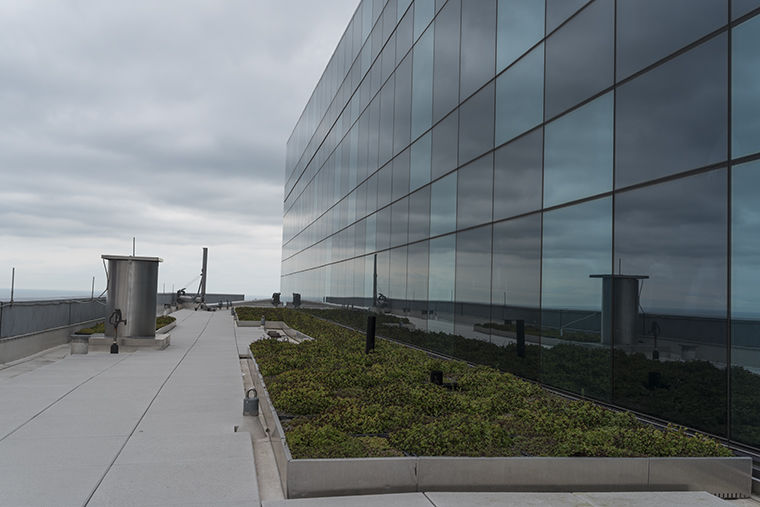New Chicago-based architect group advocates for climate change legislation
New Chicago-based architect group advocates for climate change legislation
September 12, 2016
A group of 95 Chicago-based architecture, design and engineering firms launched a new organization—the Architects Advocate Action on Climate Change—Sept. 1 to promote and advocate for climate change legislation, according to its website.
Architects must be proactive in the battle against climate change because of their ability to create sustainable environments through building, according to Tom Jacobs, a principal at Krueck + Sexton Architects, one of the architecture firms in the new group.
Buildings create about 40 percent of all carbon emissions, and architects can effectively “move the needle” toward energy efficiency, Jacobs said.
“[The organization was formed to] support a coalition of architects who believe that a healthy environment is a civil right,” he added.
There has been great progress in the group’s long-term goal of legislation to lessen climate change, he added, but additional efforts are needed, such as city building departments enforcing stricter building codes.
“Building codes are one of the most effective tools [against the damages of climate change],” Jacobs said, because they set a bar that everyone must maintain.
Krueck + Sexton Architects led the effort to create the group, according to Jose Luis de la Fuente, a principal at STL Architects, another architecture firm member in the AAACC.
When approached by Mark Sexton—founding principal at Krueck + Sexton—to participate in AAACC, De la Fuente said his firm was happy to join the group and help build a brighter future.
“As architects, there are a number of ways we can make an impact on what we believe is a real problem,” de la Fuente said.
Cynthia Klein-Banai, associate chancellor for sustainability at the University of Illinois at Chicago, said responding to climate change is critical because its effects can be seen worldwide.
Chicago’s increase in rain, flooding and temperature variations are evident—and sea levels are rising globally, Klein-Banai said.
If not addressed, the problems will impact social, shelter, migration, agriculture and political issues globally, Klein-Banai said.
Klein-Banai added the city’s storm water overflow into Lake Michigan is evidence Chicago needs greater improvements to become a sustainable environment. She is in favor of the city building an on-sight storm water mitigation system—and directing water back to the lake as opposed to the city’s water treatment plants.
“We need legislation[on climate change],” Klein-Banai said.
De la Fuente said he hopes that other firms and groups worldwide will join in the coalition to fight against climate change—and push for legislation.
“If we can galvanize a revolution to make administrators who can change policy aware that there is [sufficient scientific evidence that climate change is a problem], then we can leave a better place for our children,” de la Fuente said.








